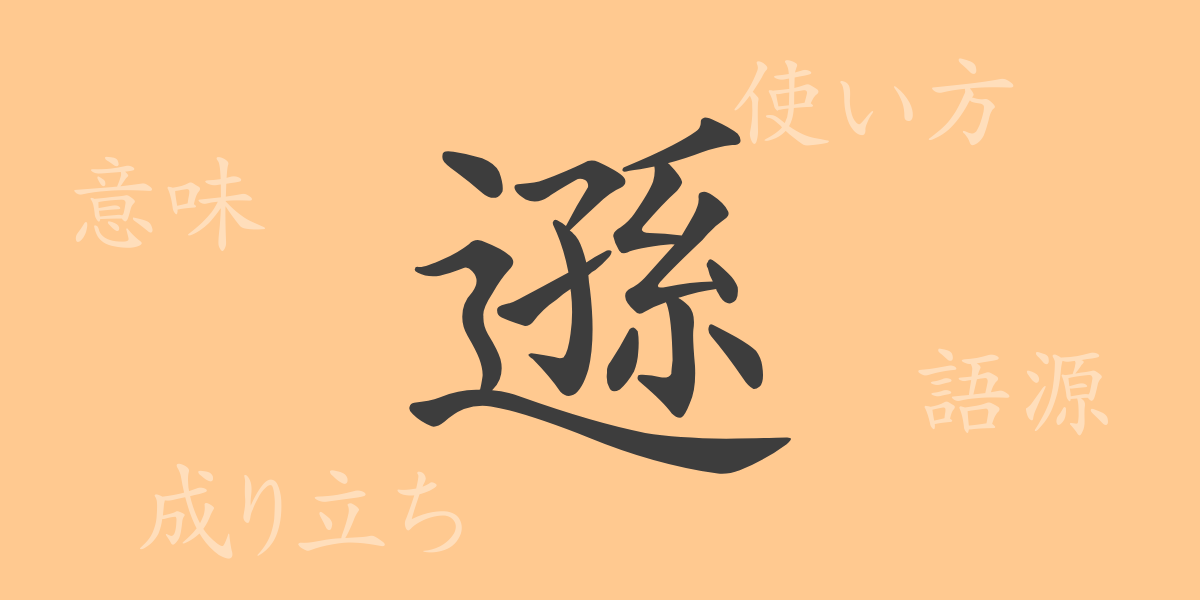The richness of Japanese culture is profoundly reflected in the meanings carried by its words. Commonly used Kanji characters each have a unique history and background, shaping the values and thoughts of the Japanese people. This article focuses on the Kanji “遜” (そん)(ソン) (son), exploring its origins, contemporary usage, and related phrases, taking us on a journey to rediscover the depths of the Japanese language.
Origin of “遜” (son)
The Kanji “遜” evolved from the character “遁” and has been used since ancient China to express humility and a modest demeanor. Composed of the radical “辵” (しんにょう)(shinnyou), which symbolizes the act of walking along a path, and the phonetic component “孫”, which literally means ‘to yield the way’, “遜” naturally came to represent self-effacement. This background makes “遜” apt for expressing modesty, a trait also embraced in Japan.
Meaning and Usage of “遜” (son)
“遜” primarily means ‘to be humble’, ‘to belittle oneself’, or ‘to be modest’. In Japanese, it is mainly used to describe someone’s humble attitude or behavior. For example, “彼は遜ることを知らない” translates to “He lacks humility.” “無理を遜る” carries the nuance of modestly claiming something is impossible. Thus, “遜” encapsulates the virtue of humility, valued in Japanese culture.
Readings, Stroke Count, and Radical of “遜” (son)
Let’s look at how “遜” is read and structured in Japanese.
- Readings: On’yomi “ソン” (son), there is no specific Kun’yomi.
- Stroke Count: “遜” consists of 12 strokes.
- Radical: The radical is “辵” (しんにょう)(shinnyou), also written as “辶”.
Idioms and Proverbs Using “遜” (son) and Their Meanings
There are several idioms, phrases, and proverbs that include the Kanji “遜”, reflecting the humility and modesty it represents. Some examples include:
- 遜色ない (そんしょくない)(sonshokunai): Meaning not inferior, equivalent.
- 遜る (へりくだる)(herikudaru): To be modest or humble.
- 遜譲 (そんじょう)(sonjou): To yield, especially positions or rights.
- 不遜 (ふそん)(fuson): Arrogant or haughty attitude.
These phrases are widely used among Japanese people and reflect the humility conveyed by “遜”.
Conclusion on “遜” (son)
The Kanji “遜” is cherished in Japanese language as a symbol of humility and modesty. Understanding its origins, meanings, and usage from ancient times to the present helps us appreciate the profound depths of Japanese culture. When encountering phrases using “遜” in daily life, recall the historical and cultural context of this character.

























